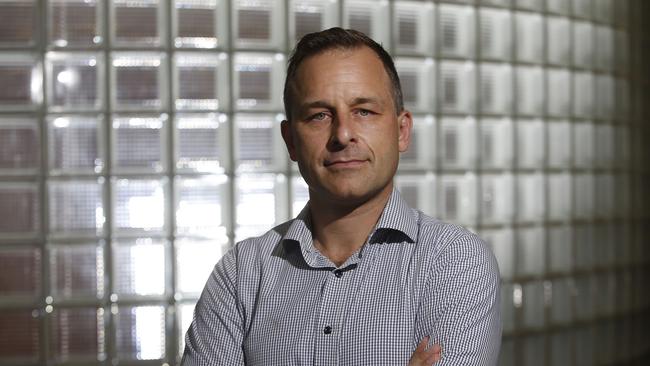Money advice: how to avoid running out of cash
Worries about watching cash plunge down the drain have intensified. Experts share their tips for staying financially afloat.
Running out of money is a rising fear among Australians, whatever their age group, but there are ways to combat these concerns.
Surging inflation over the past two years has reduced the value of retirement nest eggs – hurting those who have stopped work.
More broadly, households battling higher mortgage interest rates, rents, groceries, fuel and energy bills are finding it much tougher to end each month in the black.
Financial planners are urging people to track their spending against a budget, have a diverse range of assets and income sources, and seek help where needed.
FOR RETIREES
The past two financial years of inflation increasing at 6 per cent or more have put pressure on retirement living costs and existing savings.
CreationWealth senior financial adviser Andrew Zbik said running out of money was “a perpetual concern” but many people worried more than they needed to.
“The mistake that many people make is they have this idea that they cannot draw down on their capital and can only live off the income,” he said.
However, Australia’s retirement savings system was designed for people to draw down on their capital, Mr Zbik said. The age pension acts as a safety net later.
“For most people who own their own home, it isn’t a capital problem,” Mr Zbik said.

People could downsize to a cheaper property and put $300,000 per person into super as part of the federal government’s downsizer contribution rules, he said. Government and private reverse mortgages also offer access to home equity.
While non-homeowners receiving only a pension were on “struggle street”, Mr Zbik said many Australians with homes enjoyed expensive lifestyles with more holidays and restaurant meals than decades past.
“For most people the means to pull in their budget is there, and their necessities are actually wants,” he said.
Mr Zbik said people should have a plan to build a decent nest egg, and he noted that Australians were in an era where working longer helped deliver balanced lifestyles.
“A lot more people are accepting that in retirement they will work part-time, and are recognising from a mental health perspective that’s a good thing,” he said.
“You keep an active body and an active mind and you are alive.”
Findex head of investment relations Matthew Swieconek said it was common for retirees to worry about the longevity of their capital, especially in the early stages, and these concerns were elevated.
“It is true that many retirees are benefiting from higher interest rates on their deposits, but large numbers of retirees are now outlaying more in expenses than they are earning on their savings and investments,” he said.
Mr Swieconek suggested retirees set realistic budgets and track spending, understand the government benefits available to them, and have a diversified investment portfolio that provided long-term capital growth.
FOR EVERYONE ELSE
More younger people were struggling to make ends meet as the cost of living skyrocketed, particularly for housing costs, utilities and groceries, Mr Swieconek said.
“These concerns are seeing an increase in personal loan and credit card usage as younger Australians seek to meet their basic costs of living with personal debt,” he said.
Borrowing to pay living costs pushes people into a debt spiral, with many credit card interest rates near 20 per cent.
There is help available through free financial counselling by calling 1800 007 007, while banks and other lenders have hardship teams that can help people renegotiate debt and may be able to offer repayment holidays or other assistance
Once debt is under control, the next step is to lower your chances of running out of money in the future.
Mr Swieconek said people should have budgets and monitor spending, review insurance, utilities and subscriptions, and “pay yourself first”.

“Be disciplined in setting aside an affordable amount for long-term savings and investment each month,” he said.
Wattle Partners financial adviser and director Drew Meredith said people with large mortgages were feeling significant pain, and there were strategies available to avoid running out of money.
“Always call your bank or service provider to ask for a better deal,” he said.
“Maintain an emergency account in all circumstances.
“Be patient when saving or seeking to invest. This is a very long-term game.”
WHERE TO GET HELP
• Call the National Debt Helpline on 1800 007 007 to talk with a financial counsellor.
• Get debt management support by calling Way Forward on 1300 045 502.
• Speak with your bank about financial assistance options.
• Your insurance company will also have options to help you.
• For emotional support, call Beyond Blue on 1300 22 46 36.
Source: Moneysmart.gov.au




To join the conversation, please log in. Don't have an account? Register
Join the conversation, you are commenting as Logout